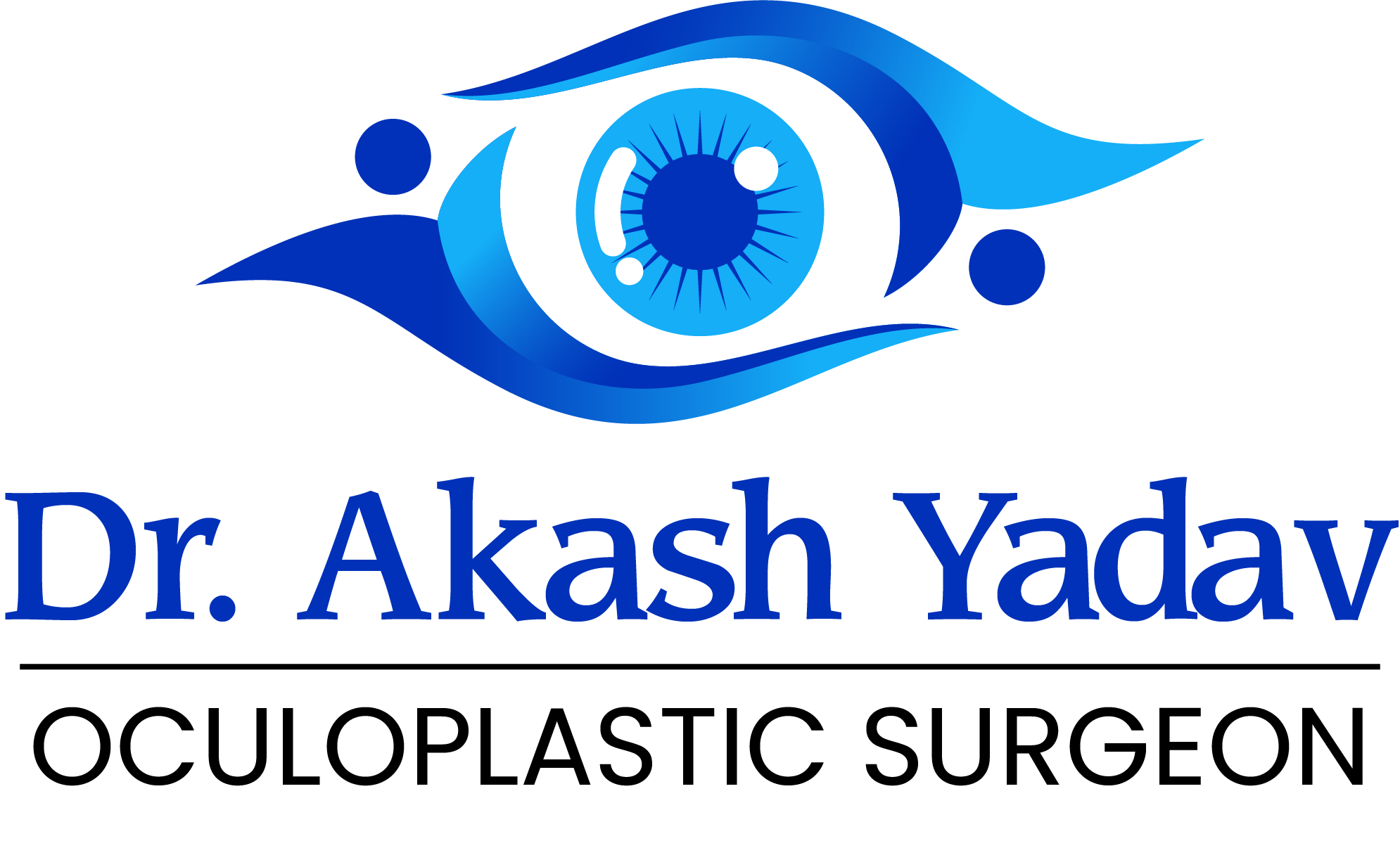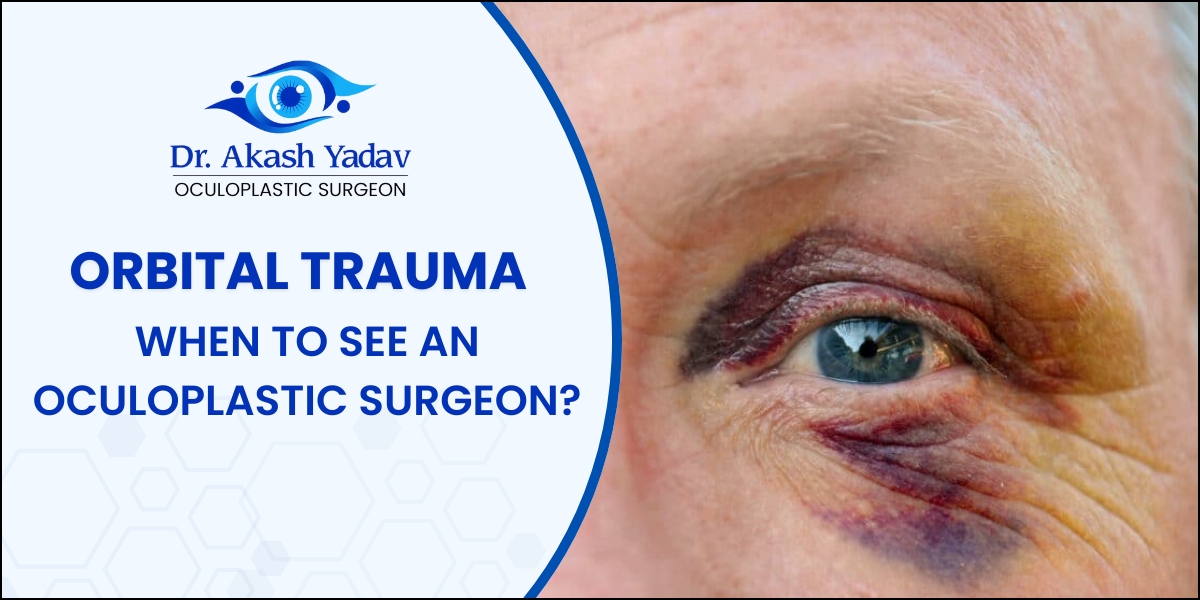Orbital Trauma: When to See an Oculoplastic Surgeon
A sudden blow to the face during a sports accident, a fall, or a car collision can be a frightening experience. While immediate pain and swelling are expected, it’s the injuries you can’t see that often pose the greatest risk to your vision and long-term eye function. This type of injury, known as orbital trauma, involves the delicate bone structure around the eye (the orbit) and its critical contents.
Many people visit a general emergency room for eye injuries, which is the right first step. However, certain complex conditions require the specialized skill set of a specific expert: an oculoplastic surgeon. Understanding when to seek this specialized care can make the difference between a full recovery and permanent complications.
What is Orbital Trauma?
The orbit is the bony cavity that houses your eye, muscles, nerves, and blood vessels. Orbital trauma refers to any injury to this complex area. This can range from simple eyelid lacerations to complex, sight-threatening fractures of the orbital bones.
Common types of orbital trauma include:
- Orbital Floor Fractures (Blowout Fractures): A direct hit to the eye can cause the thin bone underneath the eye to fracture, sometimes trapping eye muscles and affecting movement.
- Eyelid Lacerations: Cuts to the eyelid are not just cosmetic; improper healing can affect eyelid function and tear drainage.
- Orbital Hemorrhage: Bleeding behind the eye can increase pressure, compressing the optic nerve and leading to vision loss if not urgently treated.
- Naso-Orbital-Ethmoid (NOE) Fractures: Complex fractures involving the area between the eyes and the nose.
Key Signs You Need to See an Oculoplastic Surgeon
After any significant facial injury, it is essential to be evaluated by a doctor. However, the following symptoms are red flags indicating that your injury may be more than a simple black eye and that you should seek a consultation with a specialist immediately:
- Double Vision (Diplopia): This is a classic sign that an eye muscle may be entrapped in a fracture, restricting the eye’s movement.
- Numbness in the Cheek, Upper Lip, or Teeth: This suggests injury to the infraorbital nerve, which often runs through a fractured orbital floor.
- A Sunken or Abnormally Positioned Eye (Enophthalmos): This can occur when the orbital bone fractures and expands, allowing the eye to sink backward into the socket.
- Severe Facial Asymmetry: Obvious deformity of the eye or cheekbone after swelling subsides.
- Limited Eye Movement: Inability to look up, down, or side-to-side.
- Persistent Nausea or Vomiting: This can be a sign of an oculocardiac reflex triggered by an entrapped eye muscle.
- Deep Eyelid Cuts: Especially those involving the lid margin (where the eyelashes are) or the inner corner of the eye near the tear ducts.
Why an Oculoplastic Surgeon is the Right Specialist
While ophthalmologists treat eye diseases and plastic surgeons address cosmetic and reconstructive needs, an oculoplastic surgeon is uniquely qualified for orbital trauma. They possess dual training in ophthalmology and plastic surgery, giving them an unparalleled understanding of both the function and form of the eye and its surrounding structures.
Their expertise ensures that reconstruction is not just about restoring appearance but, more importantly, about preserving and restoring the function of your eye—your vision, eyelid movement, and tear production.
Seeking Expert Care in Pune? Consult Dr. Akash Yadav
If you or a loved one has experienced facial trauma involving the eye area, timely and expert intervention is critical. Consult Dr. Akash Yadav is a renowned Oculoplastic Surgeon in Pune specializing in the management of complex orbital fractures and eyelid reconstructions.
Frequently Asked Questions
1. What are the symptoms of an orbital fracture?
Key symptoms include double vision, numbness in the cheek or upper lip, a sunken-looking eye, limited eye movement, and severe swelling with visible facial asymmetry after an injury.
2. Can an orbital fracture cause blindness?
Yes, in severe cases. While the fracture itself may not, complications like significant nerve damage, orbital hemorrhage (bleeding that presses on the optic nerve), or direct eye trauma can lead to permanent vision loss if not treated urgently.
3. How is an orbital fracture treated?
Treatment depends on severity. Minor fractures may heal with rest and medication. Severe fractures with muscle entrapment or a sunken eye require surgery (orbital reconstruction) to release tissue and repair the bone, performed by a specialist like an oculoplastic surgeon.
4. Who is the best doctor for eyelid trauma in Pune?
For specialized care of eyelid and orbital trauma, consult Dr. Akash Yadav, a expert Oculoplastic Surgeon in Pune, who is specifically trained to manage both the functional and cosmetic aspects of such injuries.


